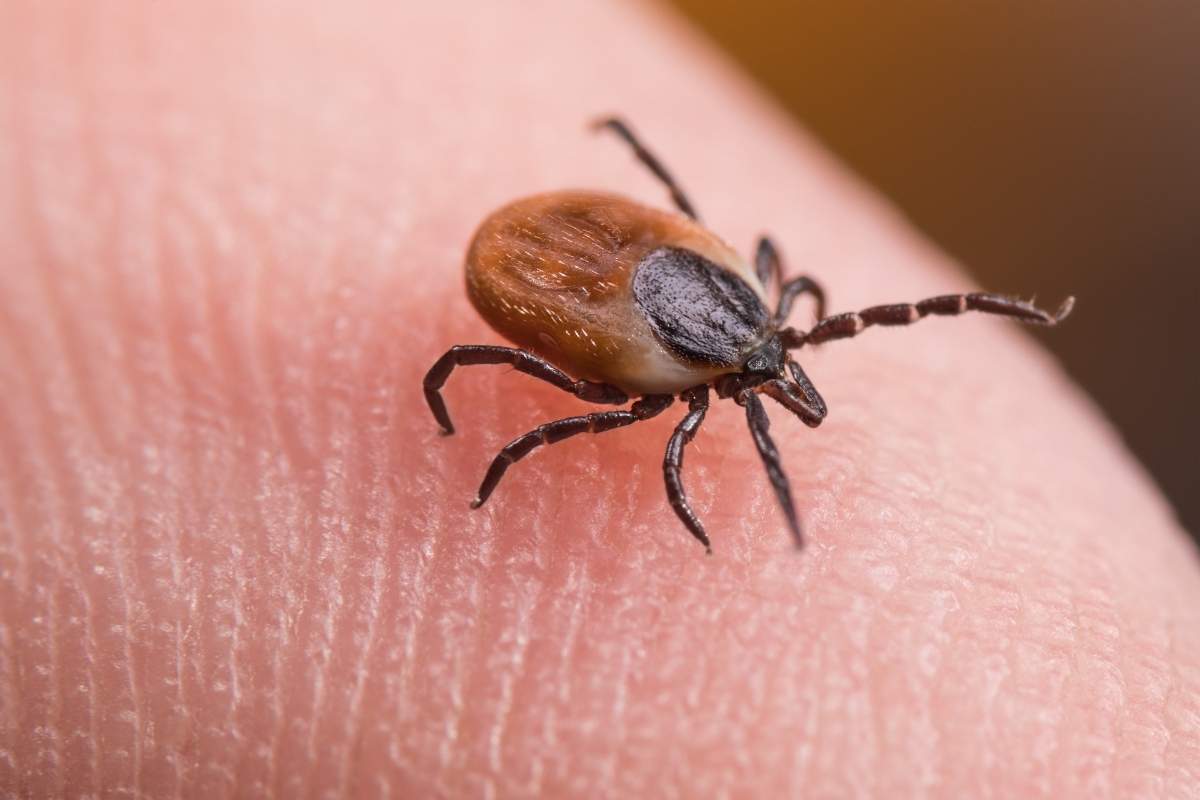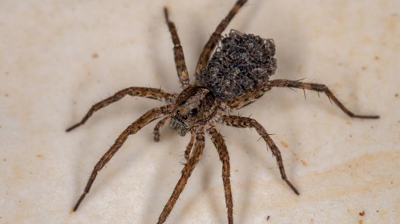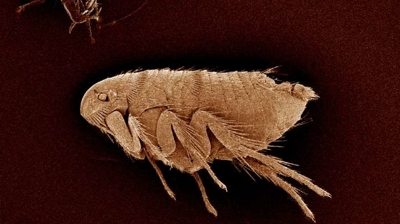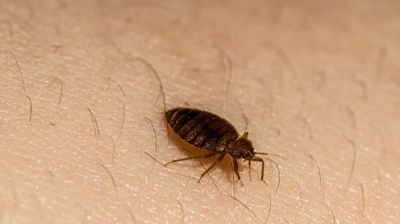
Are Ticks Harmful?
Ticks are considered pests for several compelling reasons, each tied to their biology, behavior, and the health risks they pose to both humans and animals. Here are some of the ways in which ticks are harmful:
- Disease Transmission: Ticks are notorious vectors of a wide range of serious diseases. Their ability to transmit pathogens during feeding makes them a major public health threat. Ticks are responsible for transmitting illnesses to humans, such as: Lyme disease (Borrelia burgdorferi), Rocky Mountain spotted fever (Rickettsia rickettsii), Anaplasmosis, Babesiosis, Tularemia, Ehrlichiosis, and Powassan virus (a potentially fatal encephalitis). Ticks also affect livestock and pets, spreading conditions like: Canine ehrlichiosis and anaplasmosis, Bovine anaplasmosis, Theileriosis in cattle, and Equine piroplasmosis in horses. The public health impact of tick-borne diseases makes them especially dangerous, often requiring surveillance and coordinated management efforts.
- Parasitic Feeding Behavior: Ticks are obligate blood feeders, which means they must feed on blood to survive and reproduce. This parasitic behavior is inherently harmful to their hosts. Ticks embed their mouthparts into the skin of humans or animals and may remain attached for several days, feeding on blood. Their feeding can cause localized irritation, inflammation, allergic reactions, and even secondary infections. In severe infestations (especially in livestock), blood loss can lead to anemia, reduced productivity, and weakened immune systems.
- Stealth and Persistence: Ticks are highly adapted to evade detection and removal, which increases their pest status. Their saliva contains anesthetic compounds, which numb the bite site and allow them to feed undetected. They secrete anti-clotting and anti-inflammatory agents to maintain a blood flow and prevent host immune response. Nymphs and larvae are extremely small, making early detection very difficult.
- Reproductive Capacity and Lifecycle Complexity: Ticks have a complex lifecycle that includes four stages: egg, larva, nymph, and adult. This makes them particularly resilient and difficult to control. A single female tick can lay thousands of eggs. Their lifecycle often involves multiple hosts and may span years, complicating eradication efforts. Ticks can survive long periods without feeding, allowing them to remain dormant until a host becomes available.
Ticks are not merely nuisances; they are dangerous ectoparasites and disease vectors with significant implications for public health, animal health, and economic stability. Their ability to transmit debilitating diseases, coupled with their stealthy and persistent nature, make them one of the most medically significant arthropod pests globally. Comprehensive tick management is essential to reduce their impact and safeguard both human and animal populations.
Learn more: Tick Bites || What Do Ticks Look Like? || Can Ticks Fly?
Tick Removal
Removing ticks from your property is essential because these pests pose serious health risks, reproduce quickly, and can turn any outdoor space into a hazardous environment for people and pets. Understanding why they’re so dangerous helps highlight the value of prompt, professional tick control.
Ticks are far more than a nuisance—they’re one of the most efficient disease vectors in North America. When they infest a yard, wooded edge, or commercial property, they create a hidden threat capable of affecting anyone who walks through the area. Eliminating ticks is crucial because they transmit a wide range of harmful pathogens, including Lyme disease, Rocky Mountain spotted fever, anaplasmosis, babesiosis, tularemia, and the emerging alpha-gal syndrome, which can cause a dangerous red-meat allergy. Even a single infected tick can cause long-term or life-altering illness, making control measures essential rather than optional.
Ticks also reproduce rapidly and thrive in dense vegetation, leaf litter, and shaded areas—conditions common on both residential and commercial properties. Once established, their population can explode, increasing the likelihood of bites and spreading disease to family members, customers, employees, and pets. Because they latch on quietly and often go unnoticed for hours, the risk of exposure remains high without active management.
Unchecked tick activity can also reduce the usability and enjoyment of your outdoor spaces. Families may avoid yards, businesses may see customers uncomfortable in outdoor areas, and pets are at constant risk. Proactive removal restores safety, protects public health, and creates a more comfortable and worry-free environment.
Our professional tick control is the most reliable way to eliminate active populations and create long-lasting protection. Our experts can identify hotspots, remove conducive conditions, and apply targeted treatments that homeowners or business owners simply can’t achieve on their own. By getting rid of ticks quickly, you prevent disease, safeguard property users, and maintain a healthier, more welcoming environment year-round.
Learn more: How To Get Rid Of Ticks
Tick Control
Hiring our professional tick control services offers several key benefits that go beyond what most homeowners or property managers can achieve with DIY methods. Ticks pose significant health risks to both humans and pets, as they are known carriers of diseases such as Lyme disease, Rocky Mountain spotted fever, and Ehrlichiosis. Our professional services provide a strategic, safe, and long-term approach to managing tick infestations. Here are some of the advantages:
- Accurate Identification and Inspection: Our professional exterminators are trained to accurately identify tick species and assess the extent of an infestation. Different tick species may require slightly different treatment strategies. A thorough inspection of your property allows our experts to determine breeding grounds, entry points, and environmental factors that contribute to tick populations, ensuring targeted and effective treatment.
- Customized Treatment Plans: Unlike one-size-fits-all DIY sprays or store-bought products, our professionals develop tailored treatment plans based on your specific situation. This includes the type of ticks, severity of the infestation, size of the property, vegetation density, and presence of pets or wildlife. Custom solutions are more effective at eliminating ticks at all life stages — eggs, larvae, nymphs, and adults.
- Use of Professional-Grade Products and Equipment: Our licensed pest control professionals have access to EPA-registered products and advanced application equipment that are more potent and longer-lasting than over-the-counter options. These treatments are often designed to be low in toxicity for humans and pets but highly effective against ticks. Our professionals also know how to apply them safely and in compliance with all relevant regulations.
- Integrated Pest Management (IPM) Approach: Our experienced exterminators use a holistic IPM strategy that combines chemical treatments with habitat modification, exclusion techniques, and ongoing monitoring. This comprehensive approach ensures the elimination of existing tick populations while preventing future infestations by addressing root causes, such as overgrown vegetation, standing water, and wildlife hosts.
- Health and Safety Benefits: Ticks are vectors of serious illnesses, and improper handling during removal or pesticide application can put your family or pets at risk. Our professionals minimize exposure to hazardous chemicals and reduce the risk of tick bites during treatment. We also offer guidance on post-treatment precautions and tick-bite prevention techniques for long-term protection.
- Time and Cost Efficiency: While our professional services may seem more expensive up front, they save time and money in the long run by eliminating infestations more effectively and reducing the need for repeated treatments. DIY attempts often require multiple applications and can lead to ineffective results or recurrence, ultimately costing more in wasted products and increased risk.
- Ongoing Monitoring and Maintenance: We perform ongoing visits and maintenance programs to monitor tick activity over time. Regular treatments and inspections ensure that your property remains tick-free through all seasons, especially in peak tick activity periods like spring and summer.
- Expert Advice and Education: Our professionals provide valuable advice on how to maintain a tick-free environment, such as landscaping tips, pet care recommendations, and proper yard sanitation practices. This empowers property owners to take proactive steps that complement professional treatments and reduce long-term risks.
Hiring our professional tick services is a proactive investment in the safety, health, and comfort of your home or property. Our expertise, advanced tools, and integrated approach offer a level of effectiveness and assurance that DIY methods simply cannot match. Whether you’re dealing with a current infestation or looking to prevent one, our professional tick control service is the most reliable path to long-term protection.
Tick Exterminators
Hiring our local exterminators to eliminate ticks offers significant advantages because our local professionals understand the pests, the environment, and the community in ways that national chains or DIY approaches simply cannot match:
Our local exterminators provide an immediate advantage through their deep familiarity with the region’s specific tick species, seasonal activity patterns, and environmental conditions. Different ticks carry different diseases, and their peak activity varies by climate and geography. Our local specialists recognize these patterns instantly, allowing us to design precise, highly effective treatment strategies that target the exact threats affecting your property.
We also understand the landscape features common in your area—wooded edges, moisture-heavy pockets, thick ground cover, or wildlife corridors—that often drive recurring tick infestations. With that insight, our local exterminators can identify hidden hotspots that a DIY inspection or out-of-area technician might overlook. This leads to faster elimination and stronger long-term prevention.
Because we're nearby, our local exterminators offer rapid response times and personalized service. When ticks suddenly spike in activity during warm weather or after heavy rain, our local team can arrive quickly, assess the property, and implement the appropriate treatments before the problem becomes widespread. This responsiveness is especially important for families with children and pets or businesses with outdoor customer areas where health and liability risks are higher.
Our local exterminators build long-term relationships within the community, which means we prioritize reliability, customer satisfaction, and long-lasting results. We're invested in protecting the same environment they live in, and we generally provide more thorough follow-up, ongoing monitoring, and education on how to reduce tick habitat and prevent future infestations.
Most importantly, our local pros deliver customized, targeted treatment plans rather than generic, one-size-fits-all applications. Our knowledge of local wildlife—such as deer, rodents, and other stray animals that may transport ticks—enables us to address the root causes of your infestation. This comprehensive approach delivers safer outdoor spaces, reduces disease risk, and provides lasting protection you can trust.
Tick Solutions
Our exterminators use Integrated Pest Management (IPM) to control ticks because these arachnids can transmit serious diseases, including Lyme disease, Rocky Mountain spotted fever, and ehrlichiosis, posing significant health risks to humans and pets. IPM begins with a thorough inspection to identify areas of tick activity, such as grassy fields, wooded edges, and leaf litter, as well as environmental conditions that support their life cycle, including the presence of hosts like rodents, deer, and pets. Management strategies focus on habitat modification by maintaining short grass, removing leaf litter and brush, creating buffer zones between lawns and wooded areas, and discouraging host animals from frequenting residential areas. Physical controls, such as fencing, and the strategic use of tick-targeted treatments, including insecticides applied to high-risk areas, help reduce populations. Ongoing monitoring allows our exterminators to track tick activity, assess the effectiveness of treatments, and prevent reinfestation. By integrating inspection, habitat management, selective treatment, and monitoring, IPM provides a long-term, safe, and environmentally responsible approach to managing tick populations.
Where Are Ticks Found?
Ticks are commonly found in outdoor environments, particularly in areas where vegetation is dense and where they can easily access potential hosts. The most likely places to encounter ticks are wooded areas, tall grasses, and brushy fields, especially those with high humidity, as ticks thrive in moist environments. Forest edges, overgrown lawns, and hiking trails through wooded areas are common habitats for ticks. They tend to rest on vegetation, waiting for a host to pass by, and they often attach themselves to animals or humans that brush against or pass close to the plants they are resting on.
Ticks are also frequently encountered in areas with deer populations, as deer are a major host for many tick species. Other common areas include national parks, wildlife reserves, and suburban yards with wooded borders or near areas where wildlife is abundant. Additionally, ticks can be found in areas around rivers, streams, and wetlands, where the humidity levels are typically higher. If you live in or travel through such regions, especially during warmer months when ticks are most active, it’s important to take precautions to minimize exposure, such as wearing long sleeves, using tick repellents, and performing thorough tick checks after spending time outdoors.
Learn more: Tick Infestations
What Do Ticks Eat?
Ticks are obligate blood-feeding parasites, meaning they exclusively consume blood at every active life stage (larva, nymph, and adult) to survive and develop. They do not feed on other substances, such as plant material or food scraps. Ticks are ectoparasites, meaning they live on the outside of their hosts and feed on their blood. Ticks are opportunistic feeders and can attach to a wide range of animals, including:
- Mammals: This includes a variety of mammals, such as deer, rabbits, squirrels, rodents, dogs, cats, livestock(e.g., cattle, sheep), and even humans. Ticks are known for their ability to attach to humans and animals that venture into tick-infested environments.
- Birds: Some tick species will also feed on birds, particularly during their nymph or adult stages.
- Reptiles and Amphibians: Though less common, some ticks can also parasitize reptiles like lizards and snakes or amphibians like frogs.
Ticks depend entirely on the blood of mammals, birds, reptiles, and amphibians to complete their life cycle. They are capable of transmitting diseases like Lyme disease, Rocky Mountain spotted fever, and other pathogens through their blood meals.
Tick Life Cycle
Ticks go through four life stages: egg, larva, nymph, and adult, with each stage requiring a blood meal for development, except for the egg. The life cycle can take anywhere from a few months to two years, depending on environmental conditions, tick species, and availability of hosts. Here’s a breakdown of each stage:
- Egg: The lifecycle of a tick begins as an egg. Female ticks lay their eggs in the environment, often in areas with vegetation, soil, or animal nests. After laying thousands of eggs, the female dies. The eggs typically hatch in several weeks to months, depending on the species and conditions.
- Larva (6-legged): Once the eggs hatch, the tick enters the larval stage, which is its first active life stage. The larva is six-legged and must find a host (usually small mammals or birds) to feed on to continue its development. After feeding, the larva drops off the host and molts into the next stage. The larval stage can last from a few days to several weeks.
- Nymph (8-legged): The nymph is the next stage, and it has eight legs. Like the larva, the nymph must take a blood meal from a host (often larger mammals, including humans) to develop into an adult. The nymph’s feeding is crucial for it to molt into the adult stage. This stage lasts for several weeks to months, depending on the species.
- Adult (8-legged): The adult tick also requires a blood meal to complete its reproduction process. After feeding on a host, the adult male typically mates with the female. After mating, the female will lay eggs and die, while the male typically dies after mating. The adult tick can live for several months to a year, depending on environmental factors, especially when a blood meal is readily available.
Different tick species can have variations in their lifecycles, but this general pattern holds for the most common ticks.
Learn more: What Do Tick Eggs Look Like?
Types of Ticks

Hear From Our Happy Customers
-
"Professional & Considerate"
I’m pleased with Miche services. Jarvis came today. Professional and considerate. Thank you!
- Judy B. -
"Fantastic & Patient"
Jarvis was fantastic and patient. He answered my questions with an in-depth explanation and addressed all of my areas of concern. Would love for him to be my assigned tech going forward. Well done!
- Yonnette M. -
"Very Knowledgeable"
The tech that arrived was courteous, professional, and very knowledgeable. He was Great.
- Uerial I. -
"Wonderful Service"
Wonderful service. Jarvis is great. Took care of everything I needed. Thank you!
- Henry P. -
"Great Communication"
Tech was on time, communication was great, and he accommodated my needs.
- Alonzo W. -
"Exceeds Expectations"
I can’t say enough positive things about this company... The tech that came out, Jarvis went above and beyond my expectations. Thank you guys, I will continue using your services.
- Jake M.




